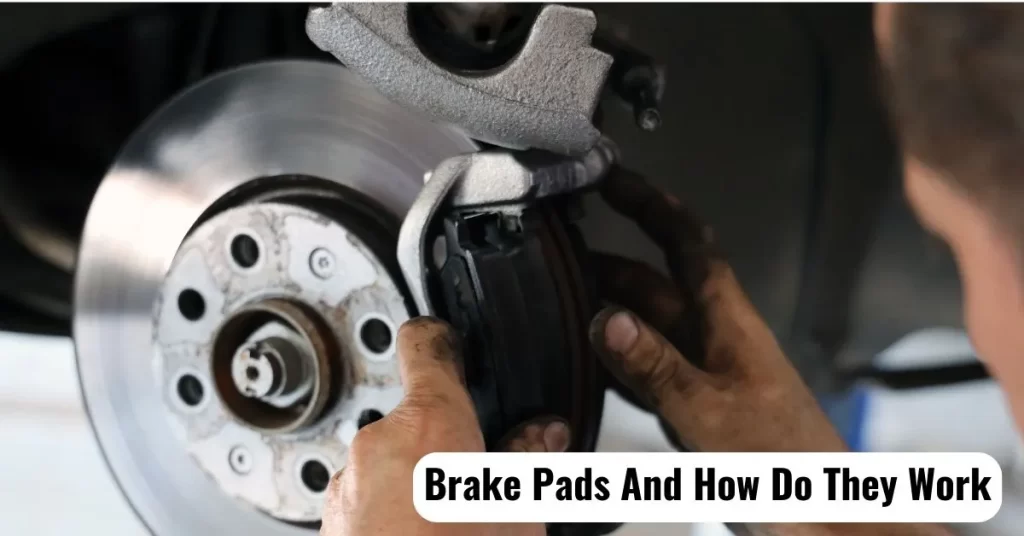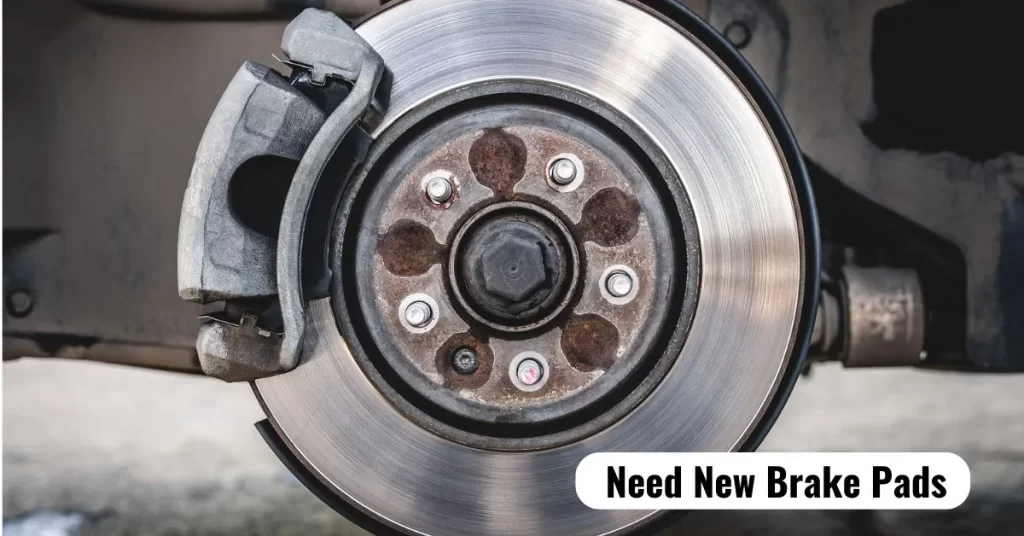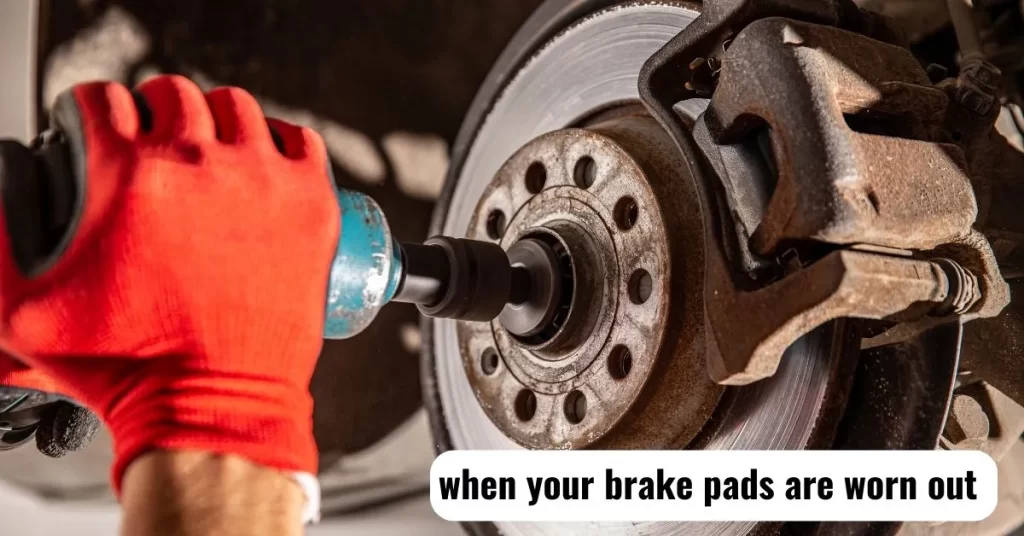How to Know When You Need New Brake Pads?
Have you ever had that heart-stopping moment when you hit the brakes, and your car takes forever to stop? Or maybe you noticed a screeching sound every time you brake? These are both signs that you might need new brake pads!
Brake pads are an essential part of your car’s braking system, and if they’re not working correctly, it can lead to dangerous situations on the road. However, knowing when it’s time to replace them can be tough. In this article, we’ll explore the signs that indicate your brake pads need replacing and provide some tips on maintaining them properly. With this knowledge, you can help keep yourself safe on the road.
Table of Contents
What Are Brake Pads And How Do They Work?

Brake pads are made to stop the wheels of a vehicle from slipping when the brakes are applied. Brake pads are made of rubber and are designed to absorb the energy of the brakes, which are released when the brakes are applied. Brake pads are usually attached to the brake rotors.
- Brakes use pads to stop the car.
- Pads wear down over time because of friction against rotors.
- If you notice these red flags, ask an auto repair shop to replace the old brake pads ASAP.
- As part of maintaining your vehicle, you should keep your brakes in good condition and replace worn parts when they wear out.
Signs You Need New Brake Pads
Brake pads are an important component of your vehicle’s braking system, and it’s essential to have them regularly inspected and replaced when needed. Knowing the signs that you need new brake pads can help you take care of your brakes in a timely manner, ensuring safe and reliable performance for your vehicle.
You hear a squealing noise
- Faster driving causes the tires to squeal.
- You don’t know what is wrong with your brakes.
- I highly recommend printing this out and sticking it in the glove compartment of your vehicle(s) in case you need it at a moment’s notice.
- You hear a squealing noise when your brake pads are in danger of eroding altogether.
You hear a clicking noise
- You have loosened your brake pads, which leads to them not working properly.
- Squeaking or scraping noises are heard when stopping. If you hit your brakes, the noise will suddenly cease. If the brake pads are worn, you will hear a grinding sound. Schedule an appointment as soon as possible!
- It takes longer to stop than usual. When the brakes are applied over long distances, “brake fade” occurs. In this way, the brake pads can build up enough heat to heat the rotors.
- As a result, the brake pads can no longer generate the friction required for stopping.
- The brake pedal vibrates when pressed, which indicates the brake pads are worn and need replacing.
- Brake pads can cause a clicking noise when they rub against the rotors.
Putting the car to a halt requires more effort than it used to
- Brake squealing is an indication of brake pad wear.
- Metal grinding can be heard when brake pads have worn too thin, and hardly any pad is left, if any at all.
- Vibration due to uneven brake pad or rotor wear could be due to several issues, including improper installation, problems with the brake caliper, and contaminated brake pads.
- The brake service light can turn on due to several issues, including worn brake pads, low brake fluid, etc.
- A brake pad should be replaced if it measures less than 1/4 of an inch (a bit smaller than half the size of your pinky finger).
- To measure your brake pads, you’ll need to remove the wheel to see the brake pad.
Whenever you brake, one side of your car pulls toward you
- Braking causes your car’s nose to pull to one side.
- When braking, the nose of your vehicle pulls to one side.
- Uneven tire pressure, a faulty wheel bearing, or a malfunctioning brake caliper cause this.
- If unevenly worn brake pads are the cause, two new sets should be installed in one session.
Squealing or Screeching Noice
- Brake pads may make a screeching noise when braking, caused by wear indicators.
- A squealing or whining noise can accompany this sound and indicate that the brakes must be replaced.
- If the noises disappear after the first few times braking, it’s likely just moisture on the pads rather than rotors needing to be replaced.
Less Than a Quarter-Inch of Brake Pad
- The condition of brake pads can be visually inspected to determine when they should be replaced.
- The friction material on the shoe or pad should be replaced if it is less than 14 inches thick.
- Visually inspecting your brake pads will help you know how worn they are.
Deep Metallic Grinding and Growling
A low, deep noise that sounds like grinding metal or rumbling can indicate worn brake pads, as well as brake pads or shoes contacting discs or drums.
If you hear this noise, you should bring your vehicle into a service shop as soon as possible. The metal-on-metal contact can cause even further damage to your brake system very quickly.
Indicator Lights
Brake indicator lights may indicate that replacing the brake pads or brake fluid is time. When brake pads are threadbare, they cause the brake caliper piston extends further and fills with brake fluid, which triggers the light. Low brake fluid levels can also be signaled by the light coming on, especially in newer vehicles with low-pad warning sensors.
What to look for when your brake pads are worn out?

Knowing when to replace your brake pads can be tricky. Factors such as driving habits and weather conditions affect how long your pads will last. It is possible to tell if they need to be replaced if they are worn out in a couple of ways.
One way to tell is to take your car for a drive and listen for any strange noises while braking. Usually, brake pads need to be replaced if they are grinding or screeching. Another way to check is to take a look at your brake pads.
If the pad is thin and there’s a lot of exposed metal on the brake disc, it’s time for new pads. Whether or not you should replace your brake pads depends on several factors: How recent your previous replacement was and whether or not you’ve been using them for a long time.
Whenever your brake fluid becomes discolored or bubbles up, this could mean that your brake pads are wearing down. If you have noticed that your brake lights are on, then this could indicate that your brake pads need replacing.
How to Check the Tread on Your Brake Pads?

Knowing when it’s time to change your brake pads is important for the health and safety of you and your car. When brake pads are worn out, they can’t stop the car as effectively, leading to dangerous accidents. Luckily, it’s easy to check the tread on your brake pads and see if they need to be replaced.
To check the tread on your brake pads, look at the grooves on the surface. If they’re less than 1/16 of an inch deep, it’s time for new pads. If they’re less than a penny deep, it’s time for new pads.
Stick a penny inside the groove of a brake pad. If you can see all of Lincoln’s head, then it’s time. It’ll still work if you can only see part of his face.
Frequently Asked Questions [FAQs]
How do you know your brake pads are bad?
If you hear grinding noise when you apply the brakes, or if your car’s braking power decreases significantly during a long stop, it is likely time to replace the brake pads.
How often do brake pads need to be replaced?
Brake pads must be replaced every 100,000 miles or about 10 years, whichever comes first.
How long do the average brake pads last?
The average lifespan of brake pads is typically three years.
How long do Toyota rav4 brake pads last?
The average brake pad lasts approximately 60,000 to 100,000 miles.
How do you know when it’s time for new brake pads?
They’re worn out if you notice your brakes squealing, screeching, or feeling “spongy” when you press them.
Conclusion
It is important to regularly check the tread on your brake pads in order to keep your car safe. When the tread is less than 1/16 of an inch deep, it’s time for new pads. Additionally, if you hear grinding noises when braking or if the brake light comes on in your vehicle, it’s time to replace the brake pads. You should also check the brake fluid levels and make sure they are not discolored or bubbling up. Following these steps will help make sure your brakes stay in top condition, keeping you safe on the roads.
